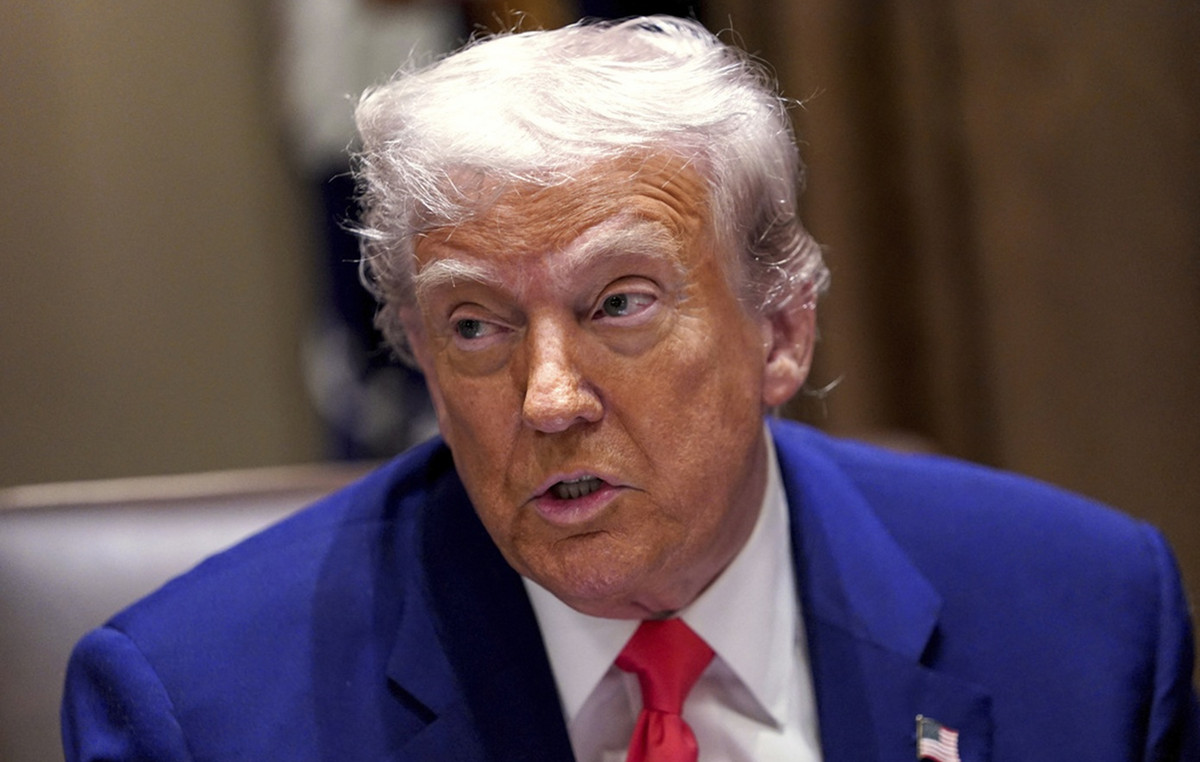The United States Senate approved a US$95.3 billion (R$472 billion) aid bill for Ukraine and Israel in a vote this Tuesday morning (13), setting up a confrontation with Chamber.
The foreign aid package includes billions of dollars to support Ukraine and security assistance to Israel, as well as humanitarian assistance to civilians in Gaza, the West Bank and Ukraine, among other priorities.
It's unclear whether House Speaker Mike Johnson would put the matter up for a vote, and many House Republicans oppose giving Ukraine more aid.
The bill passed the Senate despite Johnson's criticism of the legislation and former President Donald Trump signaling opposition to the bill, arguing that the US should stop providing aid to other countries unless it is in the form of a loan.
The Senate vote was 70-29, with 22 Republicans voting in favor, including Senate Minority Leader Mitch McConnell.
“History gets everything right,” McConnell said in a statement after the vote. “And today, on the value of American leadership and strength, history will record that the Senate did not blink.”
The bill includes $60 billion to support Ukraine in its fight against Russia, $14.1 billion in security assistance for Israel, $9.2 billion in humanitarian assistance and $4.8 billion for support regional partners in the Indo-Pacific region, in addition to other policy provisions, according to the Senate Appropriations Committee.
“The House is going to have to figure out a way forward and it’s going to have to do it its way, but we needed to start the process and we did that,” Senate GOP leader John Thune told reporters on Tuesday.
The Senate approved the legislation after Republicans blocked a broader bill last week that would combine foreign aid with a bipartisan border agreement.
Republicans initially demanded that border security be part of the bill, but rejected the bipartisan agreement on the border amid scathing attacks on the measure from Trump and top House Republicans.
In a statement released Monday, Johnson criticized the foreign aid bill for its lack of border provisions, saying the Senate “should have stepped back to amend the current bill to include real border security provisions that would actually help end with the ongoing conflict.”
Johnson had previously opposed the broader bill that included border provisions. The president characterized these provisions as insufficient, despite being the product of bipartisan negotiations and including restrictive border measures.
Senate Majority Leader Chuck Schumer celebrated the passage of the legislation, saying in remarks on the floor: “It has been years, perhaps decades, since the Senate passed a bill that so greatly impacts not only our national security, no not just the safety of our allies, but the safety of Western democracy.”
“I believe that if President Johnson brings this bill to the House floor, it will pass with the same strong bipartisan support,” Schumer said.
The Senate continued to advance the bill as Trump argued that the US should not provide foreign aid unless it was a loan, signaling opposition to the legislation.

In the Senate, consideration of the bill dragged on for days as Senator Rand Paul of Kentucky promised to extend the deadline in protest of the legislation.
Any senator can slow down the process and force the Senate to hold lengthy votes to reach final approval.
Paul continued to insist on Sunday, saying he would resist until “hell freezes over.” He indicated that he is ready to take the floor, speaking on the issue of the national debt and other matters.
“I love talking. That’s one of my favorite things to do,” he said.
“We do this with a purpose,” Paul said. “I don't like being here. I’m not here because it’s fun, I’m here because I don’t think there are enough people talking about the danger of debt.”
Source: CNN Brasil
Bruce Belcher is a seasoned author with over 5 years of experience in world news. He writes for online news websites and provides in-depth analysis on the world stock market. Bruce is known for his insightful perspectives and commitment to keeping the public informed.







